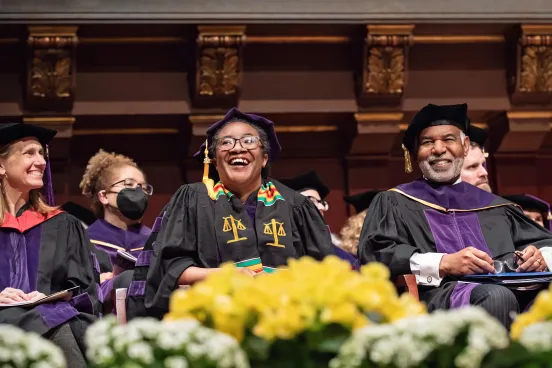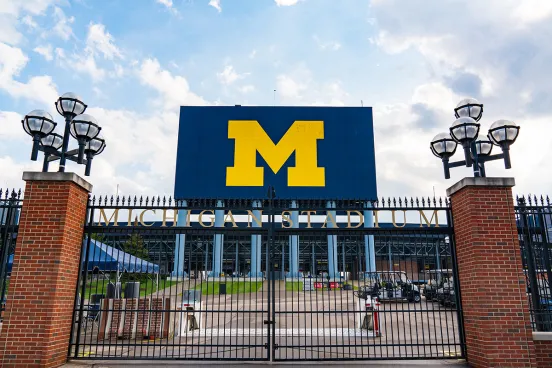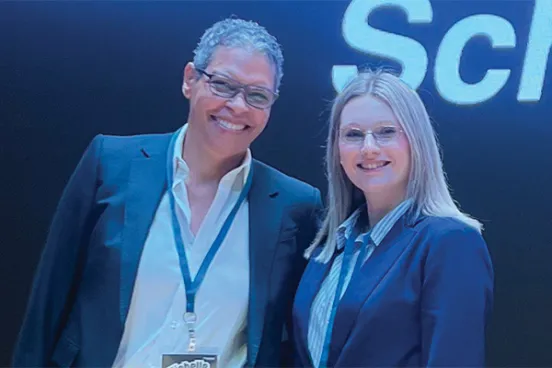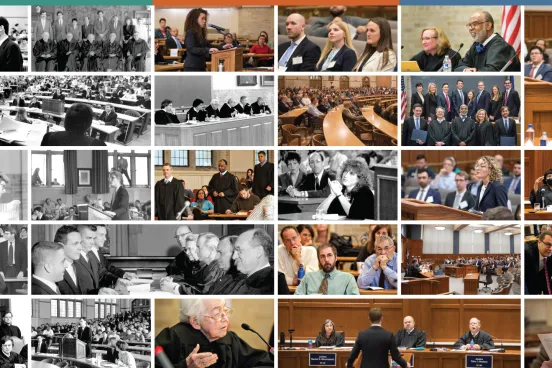
Interpreting the Constitution and applying it to contemporary legal issues has been at the heart of all that Paul Dimond, ’69, has done in his career as a civil rights litigator, scholar, and private practitioner. To encourage students to consider the most pressing constitutional questions of today, Dimond recently established an annual prize at the Law School that awards $5,000 to the author of the best scholarly work in civil rights, constitutional law, or judicial review.
“It is more important than ever for future generations to study these issues,” Dimond says. “To suggest that any court or justice is the “final arbiter” of the meaning of the Constitution is false: Over time, any justice or court’s interpretation can only be understood as provisional.”
Dimond had what you might call a kitchen table introduction to civil rights issues. His father, a professor of education at U-M, wrote several civics textbooks for secondary schools. At the time, most civics textbooks did not discuss race relations in the US, and his father’s books were written to present a more diverse and accurate portrayal of American society. When he was growing up, Dimond would read and react to his father’s drafts as a sort of test case for the content, and the experience left an impression on him.
Considering America and its institutions within a broader societal and historical context stayed with Dimond through his college career at Amherst College and Michigan Law. After graduating from the Law School, he clerked for a year on the Sixth Circuit and then joined the Harvard Center for Law and Education as a staff attorney and lecturer-in-law. There, he led advocacy efforts in federal and state court and legislatures related to segregation and the rights of disabled students in public schools, including in five cases decided by the US Supreme Court.
After two years at Harvard, Dimond co-founded a law firm in Ann Arbor and went into private practice. But he soon found himself back in court litigating civil rights cases. During a two-year leave from the firm in the mid-1970s, Dimond served as the deputy and then director of the National Lawyers’ Committee for Civil Rights Under Law, which was created by President Kennedy to organize the efforts of lawyers at large firms who were taking on pro bono civil rights cases. It was a busy two years: He served as co-counsel on more than 20 cases that appeared before the Supreme Court.
By the late 1970s—and with the encouragement of Professor Yale Kamisar and Deans Emeritus Ted St. Antoine, ’54, and Terrance Sandalow—Dimond turned his focus to research, writing, and teaching, with stints at Michigan Law, American University, and Wayne State University. Dimond’s research, along with his firsthand experiences in court, resulted in three books: about discrimination in public services, segregation in schools and housing, and the role of judicial review in our democracy. The American Political Science Association awarded Beyond Busing (U-M Press, 1985) its Ralph Bunche book of the year prize in 1986.
After leaving academia, Dimond served as general counsel and partner in a national real estate firm before joining Miller Canfield in Ann Arbor. But public service came calling once more, and in 1993, he served as special assistant to President Clinton on the National Economic Council for nearly five years before returning to Miller Canfield.
Earlier this year, the inaugural Dimond Prize was awarded to 3L Sarah Bender for her paper “Algorithmic Elections,” which examined the intersection of artificial intelligence (AI) and election administration. Although scholars have examined the effects of AI in other areas—most notably with respect to the criminal justice system—the use of algorithmic systems by election officials has received less scrutiny from researchers and policymakers.
“Bender’s paper is fascinating. She seeks a rule of law that will work, while also considering its consequences and when it should be modified over time,” Dimond says. “The issues relating to the rule of law and to the role of courts under the Constitution in our democracy are critical, and they will be just as important going forward as they have been since the founding of our Republic.”







